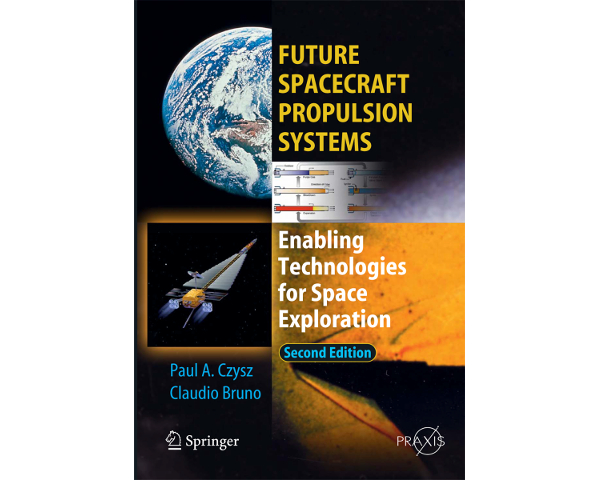Posted on Friday, October 28, 2016
Future Spacecraft Propulsion Systems: Enabling Technologies for Space Exploration by Paul A. Czysz and Claudio Bruno
If you've ever tried to imagine just a generic rocket and how it works or wondered whether there is any theoretical or practical way how spacecraft might some day go a lot further in a shorter period of time than they do now, then this thorough book is the one to peruse.
Future Spacecraft Propulsion Systems talks about the different possible propulsion systems, some of which are in use now, or are being tested and some that might become possible in the future. In addition to the details, calculations and analyses of the benefits and problems of various systems, there's also talk about exploring the Universe at different scales and distances by going there - would it ever be possible to see the Andromeda Galaxy from closeby? What are the difficulties of such exploration and how could they ever be overcome?
The book is interesting in both the technical details and overviews but also in the theoretical parts where it for example explores Special Relativity and the nature of time, but also how it might be possible to travel through a black hole. It's very fascinating, as the language used in the book is similar to what you would hear in a science fiction film - talking about jumps to hyperspace, going into a mild black hole etc.
In general it's an excellent and very useful book when you're interested in technology and physics, or when you want to find out more about some of the ideas that modern science fiction books and movies use. It's also a great first longer introduction into some specific propulsion methods and proposed spacecraft designs.
Successfully reading this book requires a bit of background knowledge about some of the topics in the book.
Labels: book review
